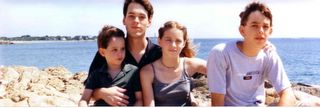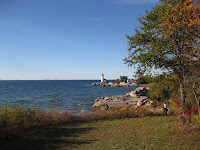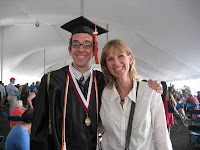Doing the truth
Even to your old age and gray hairs I am he, I am he who will sustain you. I have made you and I will carry you; I will sustain you and I will rescue you.
-Isaiah 46:4
“He gathers the lambs in his arms and carries them close to his heart.”
–Isaiah 40:11

Elizabeth Anscombe
Married for nearly sixty years, and nurturing three sons and four daughters, Mrs. Anscombe was a beloved wife and mother when she died at home in Cambridge in 2001, surrounded by family prayers. Wittgenstein's prize student and protege, Elizabeth Anscombe was also one of the foremost philosophers of the twentieth century, whose convincing logic as a young woman at a university debate with C.S. Lewis in 1948 persuaded the intellectually honest Lewis to rewrite a chapter in Miracles. 1 With her penchant for rigorous intellectual honesty and for putting her faith into action, she whole-heartedly loved her God. Though troubled in the last few years of her long life by a heart ailment and nearly crippled in a car accident, Elizabeth Anscombe wrote what would be her final lecture, entitled "Doing The Truth"--a touchstone to St. John 2, and a fitting capstone to a life engaged not only in philosophical studies of human action and intention, but chiefly in a lifelong passion for her God.
If we say that we have fellowship with him and walk in the darkness, we lie, and do not the truth: but if we walk in the light, as he is in the light, we have fellowship one with another, and the blood of Jesus his Son cleanseth us from all sin.
–1 John 1:6,7.
"Doing the truth" extends immeasurably beyond even our best plans and most beneficent strategies--as godly as those plans may be. In “doing the truth” we remember that whatever we do, God carries us. From this vantage, we have one humble purpose: to love God and our neighbor—where as C.S. Lewis pointed out “your neighbor is the holiest object presented to your senses.”4 Our own strategies are welcome and necessary--but they are the prayerful plans and deliberations of men and women already securely enfolded in the arms of their heavenly Father.
“Doing the truth” is rooted in God’s great and utterly sacrificial love for us—with His lavish love we’ve been given everything. We are then free to proceed boldly beyond the things that would perhaps keep us from doing His purpose, from extending His mercy throughout our community and the world. Our confidence to pray, to act and to serve rests entirely in Him, our surety in a loving Father who carries us “close to His heart.” A fitting nineteenth-century Danish meditation from Soren Kierkegaard reminds us to Our Lord’s love, redemption, strength and rescue as he carries us:
O Lord Jesus Christ, there is so much to drag us back: empty pursuit, trivial pleasures, unworthy cares. There is so much to frighten us away: a pride too cowardly to submit to being helped, cowardly apprehensiveness which evades danger to its own destruction, anguish for sin which shuns holy cleansing as disease shuns medicine. But Thou art stronger than these, so draw Thou us now more strongly to Thee. We call Thee our Saviour and Redeemer, since Thou didst come to earth to redeem us from the servitude under which we were bound or had bound ourselves, to save the lost. This is Thy work, which Thou didst complete, and which Thou wilt continue to complete unto the end of the world; for since Thou Thyself hast said it, therefore Thou wilt do it—lifted up from the earth Thou wilt draw all unto thee. 5Hallelujah!
Notes:
1. Anscombe and Lewis debated 2 February 1948, at the Socratic Club, Oxford. See Lewis, C.S., God In The Dock (Grand Rapids: Wm. B Eerdmans Publishing, 1994), p. 144.
2. This use can be seen not only here in John's first epistle, but in his gospel as well: "But he that doeth truth cometh to the light, that his deeds may be made manifest, that they are wrought in God" (John 3:21 KJV).
3. From a letter to Fr. Calabria, 13 January 1948. See Lewis, C.S. and Calabria, Don Giovanni, The Latin Letters of C.S. Lewis, (South Bend: St. Augustine's Press, 1998), p. 43.
4. Lewis, C.S., The Weight of Glory, (New York: Harper Collins, 2001), p. 14-15.
5. Kierkegaard, Soren, The Prayers of Kierkegaard. (Chicago: University of Chicago Press, 1996), p. 87.
(The original PDF can be found here: I Will Carry You)









































